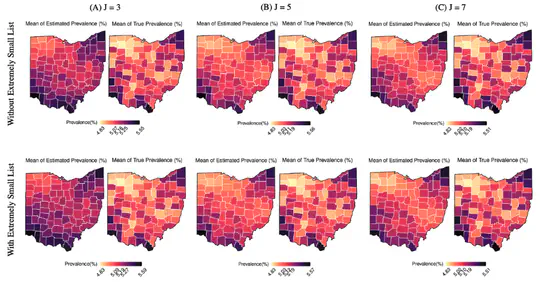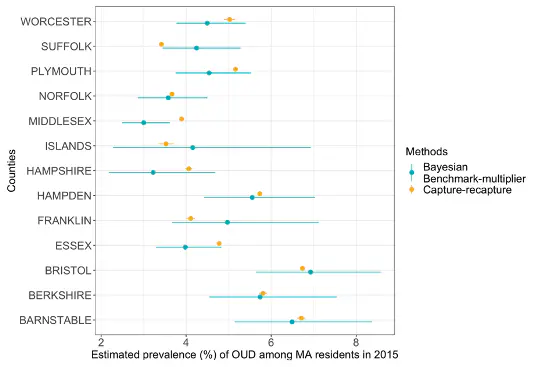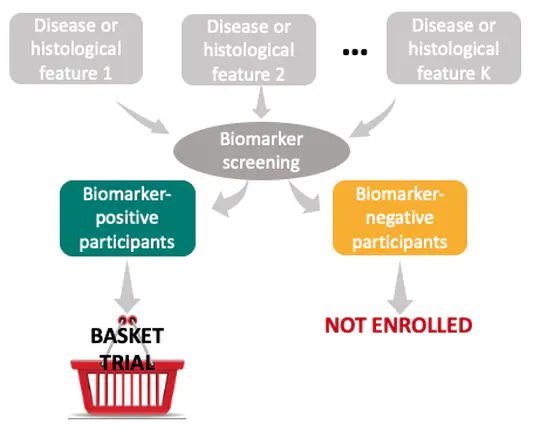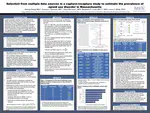I am a fourth-year PhD candidate in Biostatistics at Boston University. I also serve as a graduate student fellow at the Rafik B. Hariri Institute for Computing and Computational Science & Engineering at BU, and a graduate student fellow at Boston Medical Center, working in the HIV/HCV epidemiology and outcome research group.
I am interested in developing statistical tools to overcome challenges in public health surveillance and address critical problems in population health and epidemiology. Specifically, I work on developing Bayesian multi-level models for population size estimation and spatial disease mapping that leverage incomplete surveillance data to address tangled epidemiological and social problems, such as the opioid epidemic. Through my research, I have developed methodological research interests in Bayesian methods, small area estimation, spatial statistics, multivariate modeling, indirect methods for population size estimation, and complex computer simulator calibration. I primarily focus on modeling observational data, especially large administrative data, claims data, and electronic health records. I am interested in connecting large-scale health data to clinical trial and genomics data to inform the study design and improve the translational pipeline.
In addition, I work as a dedicated researcher in various interdisciplinary collaborative research that integrates quantitative approaches to improve population health outcomes, promote the equitable clinical practice, and inform clinical decision-making and health policy. I have participated in research on populations with infectious diseases (e.g., HIV and HCV), cancer, and substance use disorders. I am also engaged in research funded by NIH HEAL initiative using innovative methods to help understand the impact of and improve upon policies that affect people who are drug-use with or at high risk for infections of associated diseases. I look forward to applying the developed techniques and advancing the methods in a broader scope of health sciences problems and new diseases and discovering the methodological and practical connections between different contexts.
Publications
Presentations & Talks
Fundings & Awards
Fundings
- Student Fellow Award Funding supported by Boston University Rafik B. Hariri Institute for Computing and Computational Science (2021 - Present)
Honors & Awards
- Student Travel Award recognized by the International Conference of Health Policy Statistics (2022)
- Trainee Scholarship awarded by Society for Medical Decision Making Annual Meeting (2022)
- Scholar Award recognized by the American Public Health Association (2021)
- Academic Enhancement Award recognized by Boston University Rafik B. Hariri Institute for Computing and Computational Science & Engineering (2021)
Teaching
- Graduate Teaching Assistant for Data Science and Statistical Modeling in R (2022)
- Guest lecture for Survival Analysis (2022)
Professional Services
Journal Referees
- Open Forum Infectious Diseases
- Journal of Substance Abuse Treatment, Prevention, and Policy
- Journal of Archives of Suicide Research
- The American Journal of Applied Scientific Research
Conference Referees
- Society for Medical Decision Making (SMDM) Annual Meeting
- American Public Health Association (APHA) Annual Meeting & Expo
- Models of Infectious Disease Agent Study (MIDAS) Network Annual Meeting
Others
- Student liaison at American Public Health Association HIV/AIDS Section (2022 - Present)
- Contributed Session Chair at 2023 International Conference on Health Policy Statistics
Contact
- jnwang@bu.edu
- 801 Massechusetts Ave., Boston, MA 02118






